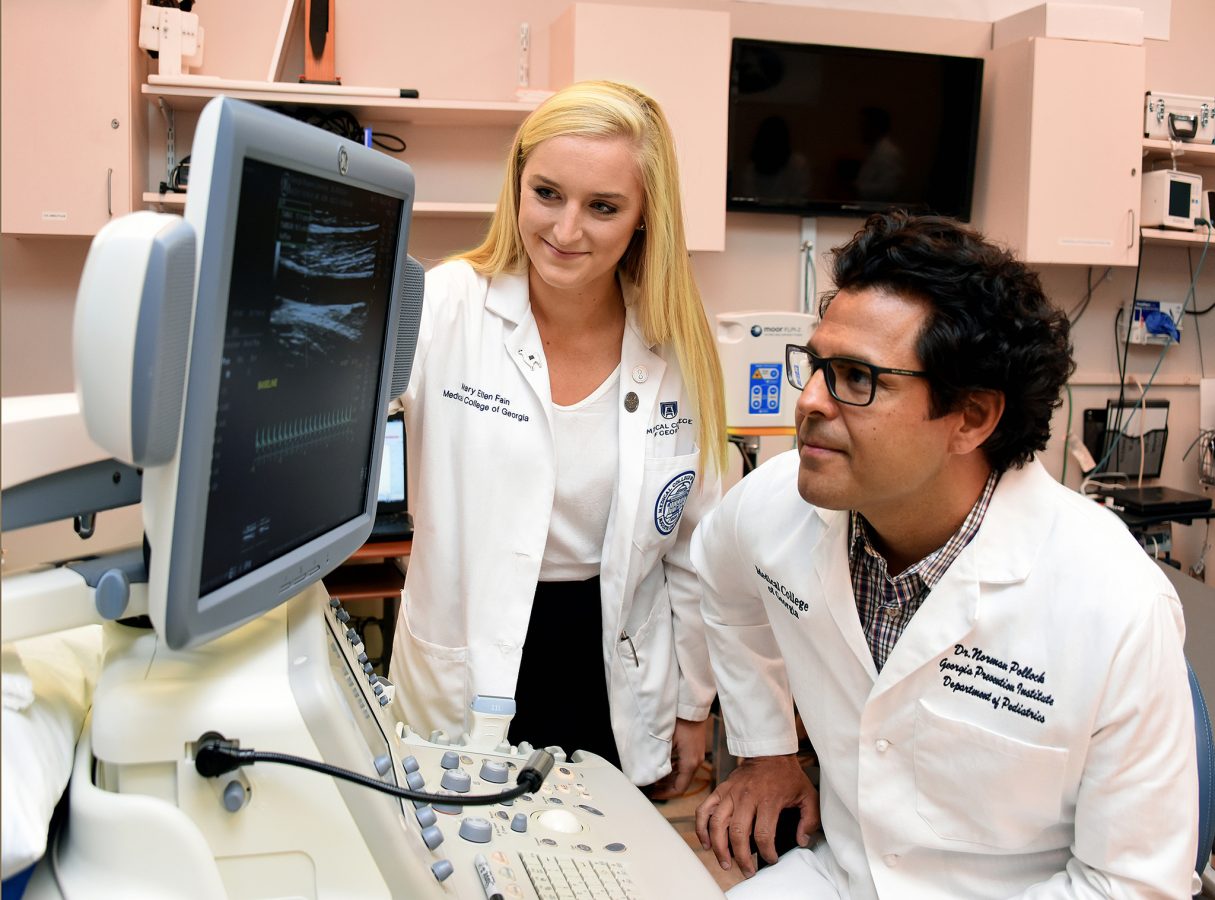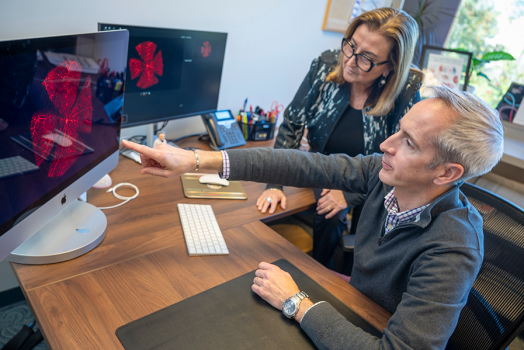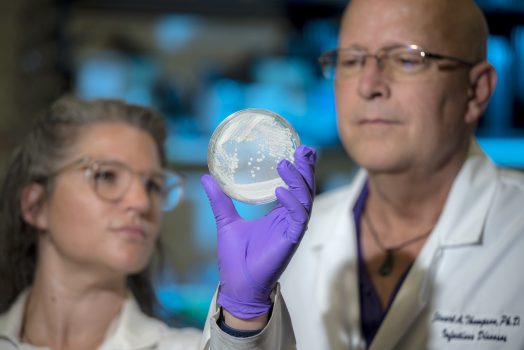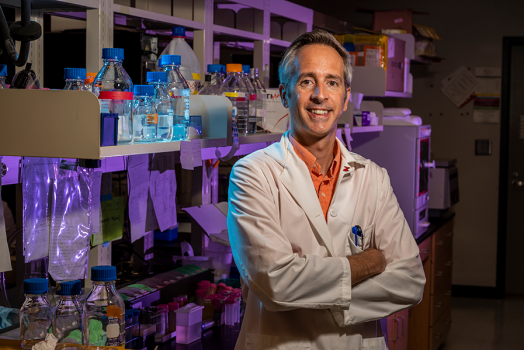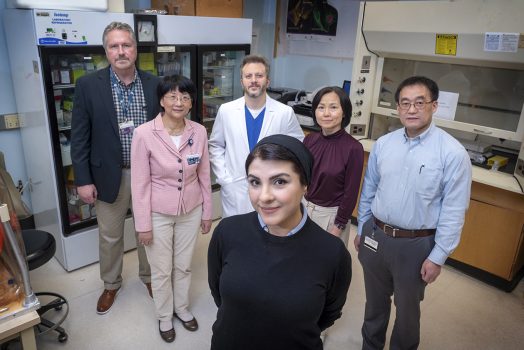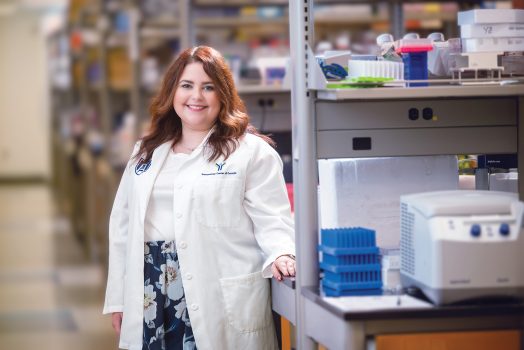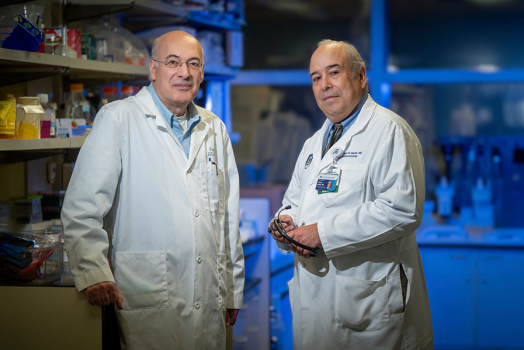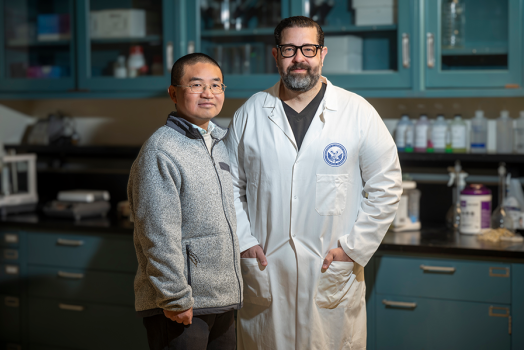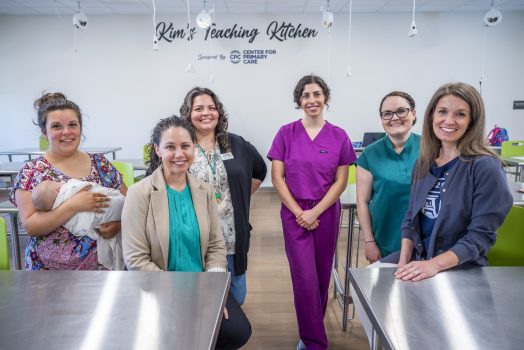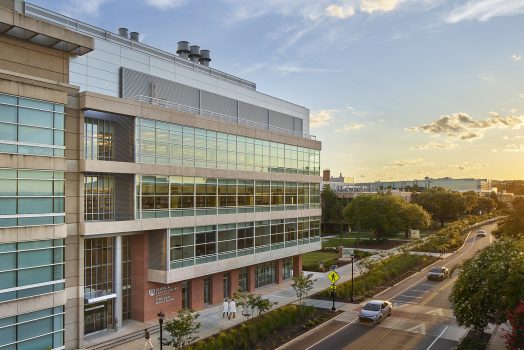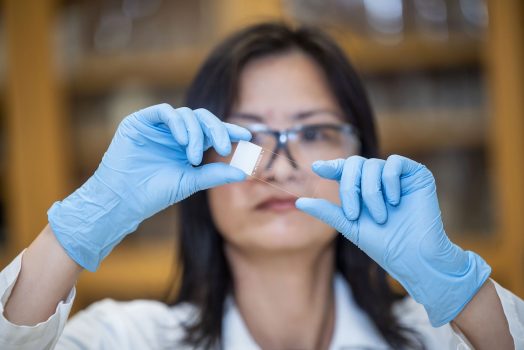"We'll basically define a chronic HIV infection as a risk factor for the development of the most severe ocular disease," says Manuela Bartoli, PhD.
“Research shows that kids gain three to five times the amount of weight over the summer than they do in the remainder of the school year,” says Lauren von Klinggraeff, PhD.
A new 150,000-square-foot research building will provide modern laboratory spaces, advanced equipment and updated technology infrastructure at AU.
“The issue is that the virus is still there and still able to release viral proteins,” says Eric Belin de Chantemèle, PhD.
"Research shows a significant relationship between gum disease and Alzheimer's disease," says Ranya El Sayed, PhD.
The new 150,000-square-foot research building will help continue propelling Augusta University toward its aspirational imperative of becoming an R1 research university.
Friday, March 7, is Dress in Blue Day for Colorectal Cancer Awareness, marking the beginning of Colorectal Cancer Awareness Month.
Since 2019, 26 community-funded innovative cancer research projects at the Georgia Cancer Center have been made possible through Paceline grants.
“Artificial intelligence is changing the trajectory of health care in this state and throughout the country,” says Augusta University President Russell T. Keen.
“By delving into these connections, we hope to identify new ways to mitigate cardiovascular risks in cancer survivors," says Sabrina Robichaud, PhD.
It spans 250 topics and includes an in-depth index section of 30 pages.
Amalia Brawley, MD, is Augusta University's first fellow in the Medical College of Georgia and Wellstar MCG Health’s new three-year Maternal Fetal Medicine Fellowship program.
Ali Eroglu, PhD, is part of a larger team at MCG that has been studying the different aspects of the aging process.
“This would be a major benefit to Augusta University, the Medical College of Georgia and the Dental College of Georgia," says AU President Russell T. Keen.
“One of the things we have been able to do is allocate seed funding to help develop projects, including this project from SPH,” says Amado Alejandro Báez, MD, PhD.
“The Healthy Georgia Report is an important tool for benchmarking the health of Georgians and highlighting opportunities for improvement," says Teresa Waters, PhD.
“Glycan sequencing uses advanced tools like next-generation sequencing and AI to quickly and accurately map out these sugar structures,” says Wan Tien Chiang, PhD.
Over the last two decades, the rate of death of new moms from pregnancy rose more steeply in Georgia than almost all other states in this country. Augusta University is trying to...
"World Cancer Day is a powerful reminder of the global impact of this disease and the ever-growing need for collective action," says Jorge E. Cortes, MD.
“Having a resource like this, especially locally, right here on campus, is a really important asset for our researchers,” says Meghan McGee-Lawrence, PhD.
 Augusta University
Augusta University
